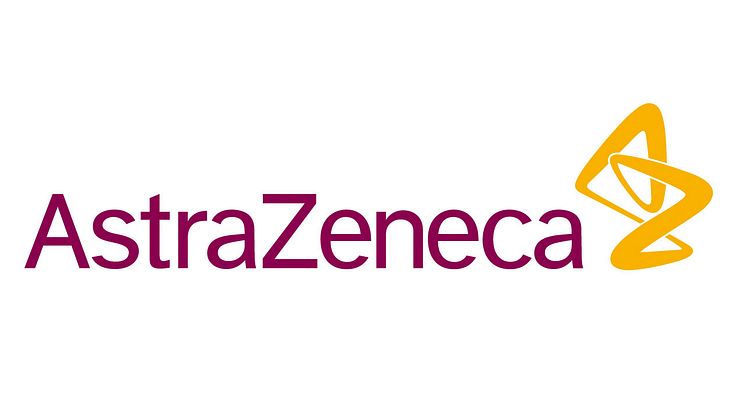
Pressmeddelande -
Imfinzi recommended for approval in the EU by CHMP for extensive-stage small cell lung cancer
Only PD-1/PD-L1 immunotherapy to demonstrate a significant survival benefit and improved response rate in combination with a choice of chemotherapies
AstraZeneca’s Imfinzi (durvalumab) has been recommended for marketing authorisation in the European Union (EU) for the 1st-line treatment of adults with extensive-stage small cell lung cancer (ES-SCLC) in combination with a choice of chemotherapies, etoposide plus either carboplatin or cisplatin. SCLC is a highly aggressive, fast-growing form of lung cancer that typically recurs and progresses rapidly despite initial response to chemotherapy.1,2
The Committee for Medicinal Products for Human Use (CHMP) of the European Medicines Agency based its positive opinion on results from the Phase III CASPIAN trial for Imfinzi plus chemotherapy, which have also been published in The Lancet.3
The trial showed that Imfinzi plus chemotherapy demonstrated a statistically significant and clinically meaningful overall survival (OS) benefit for the 1st-line treatment of patients with ES-SCLC, reducing the risk of death by 27% versus chemotherapy alone (based on a hazard ratio [HR] of 0.73; 95% confidence interval [CI] 0.59-0.91; p=0.0047). Results also showed an increased confirmed objective response rate in the Imfinzi plus chemotherapy arm (68% versus 58% for chemotherapy alone) and that Imfinzi added to chemotherapy delayed the time it took for lung cancer-related symptoms to worsen.4
An updated analysis recently showed sustained efficacy for Imfinzi plus chemotherapy after a median follow up of more than two years (OS HR: 0.75; 95% CI 0.62-0.91; nominal p=0.0032). The safety and tolerability for Imfinzi plus chemotherapy were consistent with the known safety profile of these medicines. No patients tested positive for treatment-emergent anti-drug antibodies to Imfinzi.
Luis Paz-Ares MD, Ph.D., Chair, Medical Oncology Department, Hospital Universitario Doce de Octubre, Madrid, Spain and principal investigator in the Phase III CASPIAN trial said: “The CASPIAN trial shows that Imfinzi plus a choice of platinum-etoposide chemotherapies offers an important new 1st-line treatment option for extensive-stage small cell lung cancer, providing a sustained survival benefit with a well-tolerated treatment. For many physicians in Europe, cisplatin is a preferred chemotherapy in this setting, and this recommendation is a vital step toward bringing an immunotherapy combination with cisplatin to these patients in Europe for the first time.”
José Baselga, Executive Vice President, Oncology R&D, said: “Imfinzi has the potential to address a critical unmet need for patients with extensive-stage small cell lung cancer in Europe who have few options to treat this aggressive and devastating disease. We look forward to delivering a new standard of care that significantly improves survival with a choice of chemotherapies and convenient dosing every four weeks during maintenance.”
The CHMP recommendation is for Imfinzi in combination with etoposide and either carboplatin or cisplatin for the 1st-line treatment of adults with ES-SCLC. The CASPIAN trial used a fixed dose of Imfinzi (1500mg) administered every three weeks for four cycles while in combination with chemotherapy and then every four weeks until disease progression.
Imfinzi in combination with etoposide and either carboplatin or cisplatin is approved in the US and several other countries around the world for the treatment of ES-SCLC in the 1st-line setting and is currently under regulatory review in Japan and other countries.
Small cell lung cancer
Lung cancer is the leading cause of cancer death among both men and women and accounts for about one fifth of all cancer deaths.5 Lung cancer is broadly split into non-small cell lung cancer (NSCLC) and SCLC, with about 15% classified as SCLC.6 About two thirds of SCLC patients are diagnosed with extensive-stage disease, in which the cancer has spread widely through the lung or to other parts of the body.7 Prognosis is particularly poor, as only 6% of all SCLC patients will be alive five years after diagnosis.7
CASPIAN
CASPIAN was a randomised, open-label, multi-centre, global, Phase III trial in the 1st-line treatment of 805 patients with ES-SCLC. The trial compared Imfinzi in combination with etoposide and either carboplatin or cisplatin chemotherapy, or Imfinzi and chemotherapy with the addition of a second immunotherapy, tremelimumab, versus chemotherapy alone. In the experimental arms, patients were treated with four cycles of chemotherapy. In comparison, the control arm allowed up to six cycles of chemotherapy and optional prophylactic cranial irradiation. The trial was conducted in more than 200 centres across 23 countries, including the US, in Europe, South America, Asia and the Middle East. The primary endpoint was OS in each of the two experimental arms. In June 2019, the CASPIAN trial met one primary endpoint of demonstrating OS for Imfinzi plus chemotherapy at a planned interim analysis. In March 2020, the second experimental arm with tremelimumab did not meet its primary endpoint of OS.
Imfinzi
Imfinzi (durvalumab) is a human monoclonal antibody that binds to PD-L1 and blocks the interaction of PD-L1 with PD-1 and CD80, countering the tumour's immune-evading tactics and releasing the inhibition of immune responses.
Imfinzi is approved in the curative-intent setting of unresectable, Stage III NSCLC after chemoradiation therapy in the US, Japan, China, across the EU and in many other countries, based on the Phase III PACIFIC trial. Imfinzi is also approved for previously treated patients with advanced bladder cancer in the US and a small number of other countries.
As part of a broad development programme, Imfinzi is also being tested as a monotherapy and in combinations including with tremelimumab, an anti-CTLA4 monoclonal antibody and potential new medicine, as a treatment for patients with NSCLC, SCLC, bladder cancer, head and neck cancer, liver cancer, biliary tract cancer, cervical cancer, ovarian cancer, endometrial cancer and other solid tumours.
AstraZeneca in lung cancer
AstraZeneca has a comprehensive portfolio of approved and potential new medicines in late-stage development for the treatment of different forms of lung cancer spanning different histologies, several stages of disease, lines of therapy and modes of action. AstraZeneca aims to address the unmet needs of patients with EGFR-mutated tumours as a genetic driver of disease, which occur in 10-15% of NSCLC patients in the US and EU and 30-40% of NSCLC patients in Asia, with the approved medicines Iressa (gefitinib) and Tagrisso (osimertinib) and its ongoing Phase III trials LAURA, NeoADAURA and FLAURA2.8-10
AstraZeneca is committed to addressing tumour mechanisms of resistance through the ongoing Phase II trials SAVANNAH and ORCHARD which test Tagrisso in combination with savolitinib, a selective inhibitor of c-MET receptor tyrosine kinase, along with other potential new medicines. Enhertu (trastuzumab deruxtecan), a HER2-directed antibody drug conjugate, is in development for metastatic non-squamous HER2-overexpressing or HER2-mutated NSCLC including trials in combination with other anticancer treatments.
An extensive Immuno-Oncology development programme focuses on lung cancer patients without a targetable genetic mutation which represents up to three-quarters of all patients with lung cancer.11 Imfinzi, an anti-PDL1 antibody, is in development for patients with advanced disease (Phase III trials POSEIDON and PEARL) and for patients in earlier stages of disease including potentially-curative settings (Phase III trials MERMAID-1, AEGEAN, ADJUVANT BR.31, PACIFIC-2, PACIFIC-4, PACIFIC-5, and ADRIATIC) both as monotherapy and in combination with tremelimumab and/or chemotherapy. Imfinzi is also in development in the Phase II trials NeoCOAST, COAST and HUDSON in combination with potential new medicines from the early-stage pipeline including Enhertu.
AstraZeneca’s approach to Immuno-Oncology
Immuno-oncology (IO) is a therapeutic approach designed to stimulate the body’s immune system to attack tumours. The Company’s IO portfolio is anchored by immunotherapies that have been designed to overcome anti-tumour immune suppression. AstraZeneca is invested in using IO approaches that deliver long-term survival for new groups of patients across tumour types.
The Company is pursuing a comprehensive clinical-trial programme that includes Imfinzi as a monotherapy and in combination with tremelimumab in multiple tumour types, stages of disease, and lines of therapy, and where relevant using the PD-L1 biomarker as a decision-making tool to define the best potential treatment path for a patient. In addition, the ability to combine the IO portfolio with radiation, chemotherapy, small targeted molecules from across AstraZeneca’s Oncology pipeline, and from research partners, may provide new treatment options across a broad range of tumours.
AstraZeneca in oncology
AstraZeneca has a deep-rooted heritage in oncology and offers a quickly growing portfolio of new medicines that has the potential to transform patients’ lives and the Company’s future. With seven new medicines launched between 2014 and 2020, and a broad pipeline of small molecules and biologics in development, the Company is committed to advance oncology as a key growth driver for AstraZeneca focused on lung, ovarian, breast and blood cancers. In addition to AstraZeneca’s main capabilities, the Company is actively pursuing innovative partnerships and investment that accelerate the delivery of our strategy, as illustrated by the investment in Acerta Pharma in haematology.
By harnessing the power of four scientific platforms – Immuno-Oncology, Tumour Drivers and Resistance, DNA Damage Response and Antibody Drug Conjugates – and by championing the development of personalised combinations, AstraZeneca has the vision to redefine cancer treatment and, one day, eliminate cancer as a cause of death.
AstraZeneca
AstraZeneca (LSE/STO/NYSE: AZN) is a global, science-led biopharmaceutical company that focuses on the discovery, development and commercialisation of prescription medicines, primarily for the treatment of diseases in three therapy areas - Oncology, Cardiovascular, Renal & Metabolism, and Respiratory & Immunology. Based in Cambridge, UK, AstraZeneca operates in over 100 countries and its innovative medicines are used by millions of patients worldwide. Please visit astrazeneca.com and follow the Company on Twitter @AstraZeneca.
Contacts
For details on how to contact the Investor Relations Team, please click here. For Media contacts, click here.
References
1. National Cancer Institute. NCI Dictionary - Small Cell Lung Cancer. Available at https://www.cancer.gov/publications/dictionaries/cancer-terms/def/small-cell-lung-cancer. Accessed May 2020.
2. Kalemkerian GP, et al. Treatment Options for Relapsed Small-Cell Lung Cancer: What Progress Have We Made? Journal of Oncology Practice, 2018:14;369-370.
3. Paz-Ares L, et al. Durvalumab plus platinum-etoposide versus platinum-etoposide in first-line treatment of extensive-stage small-cell lung cancer (CASPIAN): a randomised, controlled, open-label, phase 3 trial. The Lancet. 2019;394(10212):1929-1939.
4. Paz-Ares L, et al. PD-L1 Expression, Patterns of Progression and Patient-reported Outcomes (PROs) with Durvalumab Plus Platinum-etoposide in ES-SCLC: Results from CASPIAN. Presented at the European Society for Medical Oncology Congress. Barcelona, Spain. 28 September 2019.
5. World Health Organization. International Agency for Research on Cancer. Available at http://gco.iarc.fr/today/data/factsheets/cancers/15-Lung-fact-sheet.pdf. Accessed May 2020.
6. LUNGevity Foundation. Types of Lung Cancer. Available at https://lungevity.org/for-patients-caregivers/lung-cancer-101/types-of-lung-cancer. Accessed May 2020.
7. Cancer.Net. Lung Cancer - Small Cell. Available at https://www.cancer.net/cancer-types/33776/view-all. Accessed May 2020.
8. Szumera-Ciećkiewicz A, et al. EGFR Mutation Testing on Cytological and Histological Samples in Non-Small Cell Lung Cancer: a Polish, Single Institution Study and Systematic Review of European Incidence. Int J Clin Exp Pathol. 2013:6;2800-12.
9. Keedy VL, et al. American Society of Clinical Oncology Provisional Clinical Opinion: Epidermal Growth Factor Receptor (EGFR) Mutation Testing for Patients with Advanced Non-Small-Cell Lung Cancer Considering First-Line EGFR Tyrosine Kinase Inhibitor Therapy. J Clin Oncol. 2011:29;2121-27.
10. Ellison G, et al. EGFR Mutation Testing in Lung Cancer: a Review of Available Methods and Their Use for Analysis of Tumour Tissue and Cytology Samples. J Clin Pathol. 2013:66;79-89.
11. Pakkala, S, et al. Personalized therapy for lung cancer: striking a moving target. JCI Insight. 2018;3(15):e120858.
Ämnen
Om AstraZeneca
AstraZeneca är ett globalt, innovationsdrivet bioläkemedelsföretag med fokus på forskning, utveckling och marknadsföring av receptbelagda läkemedel, primärt för behandling av sjukdomar inom tre huvudsakliga terapiområden: cancer, kardiovaskulära sjukdomar, njursjukdomar och metabola sjukdomar och sjukdomar i andningsvägarna. AstraZeneca bedriver verksamhet i över 100 länder och dess innovativa läkemedel används av miljontals patienter över hela världen.
Mer information finns på: www.astrazeneca.com och www.astrazeneca.se. Du kan även följa oss på twitter https://twitter.com/AstraZenecaSE


